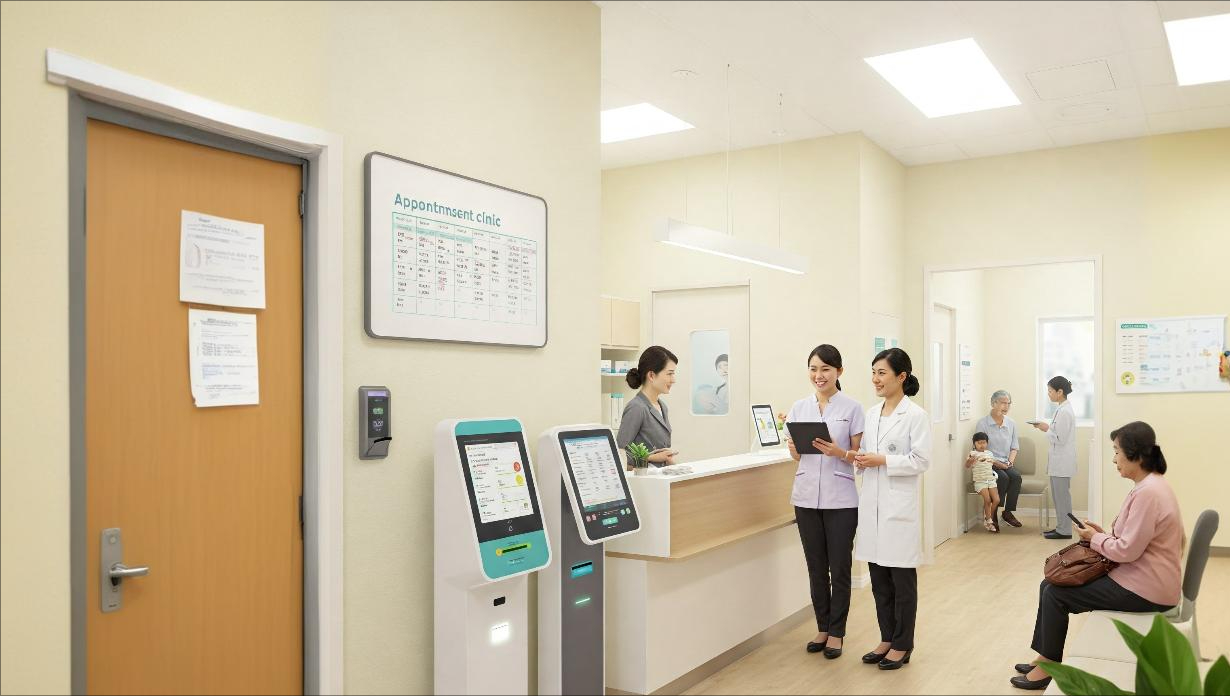 That was Mira’s reality.
That was Mira’s reality.
As a clinic manager, Mira (not her real name) wore a dozen hats—and most days, it felt like they were all on fire. There were always last-minute cancellations, staff calling in sick, inventory issues, patients arriving late, or worse—unexpected walk-ins during the busiest hours.
And just when she thought she’d solved one issue, another popped up.
- Mondays started with a packed calendar and ended with her scrambling to rearrange the entire week.
- Tuesdays brought surprise shortages of basic supplies.
- Wednesdays? Her phone never stopped buzzing.
By Thursday, she was already drained—but Friday didn’t care. There was no finish line, no breathing room. Every day blurred into the next.
And the weekends?
Well, those weren’t hers anymore.
“I can’t even enjoy a weekend with my family without being pulled back into work,” Mira often thought, sitting at the dinner table with her phone face-up, half-listening to her daughter’s story about school while silently typing out a response to yet another staff schedule change.
Her family noticed. Her kids stopped asking her to play games or watch movies. Her husband started tiptoeing around clinic talk, knowing how quickly it would steal her attention. Even on vacations—when they managed to take one—Mira was tethered to her phone, her mind constantly spinning.
The stress was unrelenting. Mira loved her clinic. She loved helping patients. She loved leading a team that cared deeply. But it was draining her. Her identity started to shrink: she wasn’t Mira anymore—she was “the manager,” 24/7.
She whispered to herself one night, “I just want to have dinner with my kids without work interrupting. I want to breathe without feeling like something’s about to go wrong.”
That night, as she sat at her kitchen table surrounded by open notebooks, half-finished spreadsheets, and a blinking inbox, Mira made a quiet decision:
Something had to change!

It started small.
She began researching tools and systems that other clinics were using. Digital appointment systems, cloud-based records, automation platforms for reminders and follow-ups. The more she learned, the more she realized: she didn’t have to do everything manually.
So, she took the leap. Mira decided to start digitizing her clinic.
At first, it was rough.
The learning curve was real. New software felt clunky. Some of her team members resisted. “We’ve always done it this way,” they’d say. “Why fix what’s not broken?”
But Mira knew—it was broken. It just looked functional on the outside.
She faced doubt too. “What if this makes things worse? What if patients hate the change? What if the team can’t keep up?” The questions didn’t go away, but she kept going. Slowly, piece by piece, she started to rebuild the foundation of her clinic—this time with systems. She:
- Set up a digital appointment booking system that synced in real-time.
- Introduced automated reminders for patients.
- Switched to cloud-based records, making it easier to access patient information without digging through folders.
- Implemented a task management platform for her team, so nothing slipped through the cracks.
- Created a dashboard to track inventory, staff schedules, and patient flow.
Each week, something got a little easier.
There were still hiccups, of course. But something unexpected began to happen:
- The last-minute phone calls dropped.
- The “firefighting” moments? Fewer and farther between.
- And for the first time in a long time… Mira turned her phone on silent during dinner.
She didn’t have to constantly hover over everything. The systems she built were catching issues before they became problems. Her team felt more confident. Her patients noticed how smooth things ran. And Mira?
Mira felt like herself again.
“I never thought I’d be able to take a vacation without stressing about the clinic,” she said with a laugh. “Now, I can check in from anywhere, handle problems remotely, and—most importantly—trust that things won’t fall apart if I’m not physically there.”
The transformation wasn’t just about technology. It was about freedom.
Mira got her time back. Her energy. Her peace of mind.
She started doing things she hadn’t done in years. Sunday brunches. Evening walks. Phone-free movie nights with her family. She even joined a local book club—a simple joy she’d been putting off for “someday.”
But most of all, she got her presence back.
Now, when her daughter talks about school, Mira listens—really listens. No more typing under the table. No more mental checklists while pretending to be present.
She still loves her clinic. She still works hard. But now, she works smart. With the right systems in place, she can show up for her patients and her family.
And when things go wrong—which, let’s be honest, they sometimes still do—Mira knows she’s equipped to handle them without falling apart.
If you’re feeling like Mira once did—tired, overwhelmed, constantly reacting instead of leading—know this!
You don’t have to live in survival mode
You can design a better system. One that supports you, your team, and your life outside of work.
Mira’s story isn’t just about digitizing a clinic. It’s about reclaiming control. Reclaiming joy. Reclaiming you.
Because at the end of the day, burnout shouldn’t be part of the job description.
It starts with a single decision: something has to change.
Do you know someone like Mira?
We are looking for SME Digitization Heroes who:
- Transformed their traditional business through digital tools
- Created innovative solutions, even with limited resources
- Inspired others in their community to embrace change
These SME Digitization Heroes aren’t just about their digital success. They’re about vision, resilience, and the courage to break free from old ways and embrace new possibilities. They’re also focused on creating the life they really want—one that fits their passions, dreams, and values.


